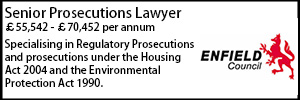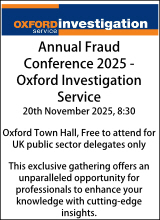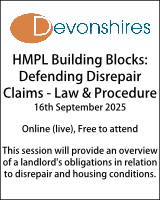Litigation as stewardship: How UK pension funds including LGPS are shaping corporate accountability
Jamie E. Hanley looks at recent cases where LGPS funds have engaged in securities litigation and sets out some key considerations.
- Details
UK pension funds have a long and proud history of taking and supporting action against corporate wrongdoing and playing an active role not only as responsible fiduciaries but also as part of an investment community which seeks to have a positive impact on the world.
Engagement with corporations across environmental, social, and governance (“ESG”) goals has traditionally included filing shareholder resolutions, exercising voting rights, and engaging with boards to encourage responsible decision-making. Actions such as these are regularly promoted in Annual Reports as examples of positive stewardship.
The most common lever is voting, and UK pension funds overwhelmingly use AGM voting (sometimes escalated to public calls to vote against chairs or remuneration reports) as their primary leverage to influence corporate governance and behaviour. Funds sometimes act collectively - the LAPFF and the LGPS pooling model multiply the voting influence of individual local funds — so you’ll often see several LGPS funds acting effectively as one voice at AGMs.
Public declarations are increasingly common. Pre-declared “we will vote against” statements are now a common escalation step when engagement fails - for example, ahead of BP’s 2025 AGM a large bloc of institutional investors (including LGPS pools such as Border to Coast, Brunel, and other major investors) publicly pre-declared they would vote against BP’s chair and certain reports over concerns about weakening of climate commitments — and the AGM registered c.24% opposition. This is a high-profile example of funds using votes at an AGM to signal governance failure.
Increasingly, and particularly as corporates seem unwilling to respond to more traditional leverage, UK pension funds are using litigation as a part of their stewardship toolkit.
In recent years examples in the LGPS space include both the North East Scotland Pension Fund and Norfolk Pension Fund stepping forward to act as lead plaintiffs.
Norfolk led a claim against Apple in the U.S. District Court for the Northern District of California (Oakland) in a case that was originally filed in 2019 alleging that Apple (and individual officers) made false or misleading statements in late 2018 about iPhone demand in China that caused an artificial inflation of Apple’s share price and investor losses when Apple later revised guidance. $490 million was recovered for the class.
North East Scotland led a claim against Under Armour in the U.S. District Court for the District of Maryland. The initial complaint alleged securities fraud with false/misleading statements made by Under Armour and certain officers about the company’s business and product demand. Over $430 million was recovered for the class.
U.K.’s largest DB Fund, the Universities Superannuation Scheme was instrumental in a $3 billion settlement resolving claims that the value of Petrobras American Depository Receipts declined after revelations of a long-running corruption and overbilling scheme involving company executives and Brazilian politicians.
Given these recent securities success stories, I am now seeing a clear and increased willingness among my UK pension funds clients to play a more active role in securities litigation and similar claims —particularly amid growing expectations for transparency and accountability from issuers.
In deciding whether to engage in securities litigation and similar claims, it is always advisable to speak with U.S. counsel - I run the London office of a New York headquartered law firm and so benefit from a substantial team of expert lawyers with a track record of success in class actions and with enough resources to handle the demands of a class action, even against the most well-resourced corporate.
I’m struck by how many UK and EU pension fund clients tell me that having acted as lead plaintiff was nowhere near as time consuming or burdensome as they anticipated. Institutional investors who retain sophisticated counsel can expect lots of hand holding through their involvement, which may include providing initial disclosure information, giving witness evidence and a deposition, as well as discussing settlement offers.
The cost of securities litigation is generally much lower than investors assume - the nature of plaintiff-side litigation in the US means that lawyers’ fees are entirely contingent, paid out of a final settlement / judgment, and assessed for fairness by the court.
When presented with a potential claim, it is imperative that an investor is advised about the merits of a potential claim, and the following are indicative of a strong case:
- Whistleblower reports, sudden executive departures, or restatement of earnings from the company—these are all indicators that a company had intent to deceive with its false or misleading statements
- A sharp decline in stock price after the company’s deception comes to light
- Substantial, quantifiable damages directly attributable to the fraud or deceptive acts of the company.
Bringing a strong securities litigation action signals active management to UK pension fund members and could lead to significant financial recovery. While shareholder engagement and proxy voting remain central to stewardship strategies, litigation is increasingly being viewed as a legitimate and necessary tool to protect long-term value and investor rights.
I am also seeing many funds react to developments - for example, my firm recently won a landmark claim against Meta that is likely to result in many $billions of damages being paid to women who used the Flo Health app and whose extremely sensitive reproductive health data (menstrual cycles, pregnancy status, fertility goals, etc.) was harvested from users without their informed consent. The claim which ended at trial resulted in a verdict which is seen as a landmark in digital health data privacy — it underscores that companies may be held accountable under wiretap/privacy statutes for collecting sensitive health information embedded in apps, even when a developer claims the data is “anonymised” or “de-identified,” and even if the data flow is indirect (or via third-party software development kits). Key findings at trial included that users had a reasonable expectation of privacy, that Meta did not have consent from all parties, and that the data transmission amounted to recording or intercepting protected communications. A number of my UK fund clients have now asked me to keep them updated on claims filed against other global tech giants, especially where the privacy of consumer data is compromised. Lawsuits of this nature reflect the kind of proactive stewardship that many pension funds support—and underscore the expanding role that litigation will play in upholding investor rights.
Jamie E, Hanley is a Partner at Labaton Keller Sucharow LLP. With additional contribution from Jessica N. Goudreault, Associate.
Trust Solicitor (Employment & Contract Law)
Trust Solicitor (Public & Healthcare Law)
Locums
Poll


























